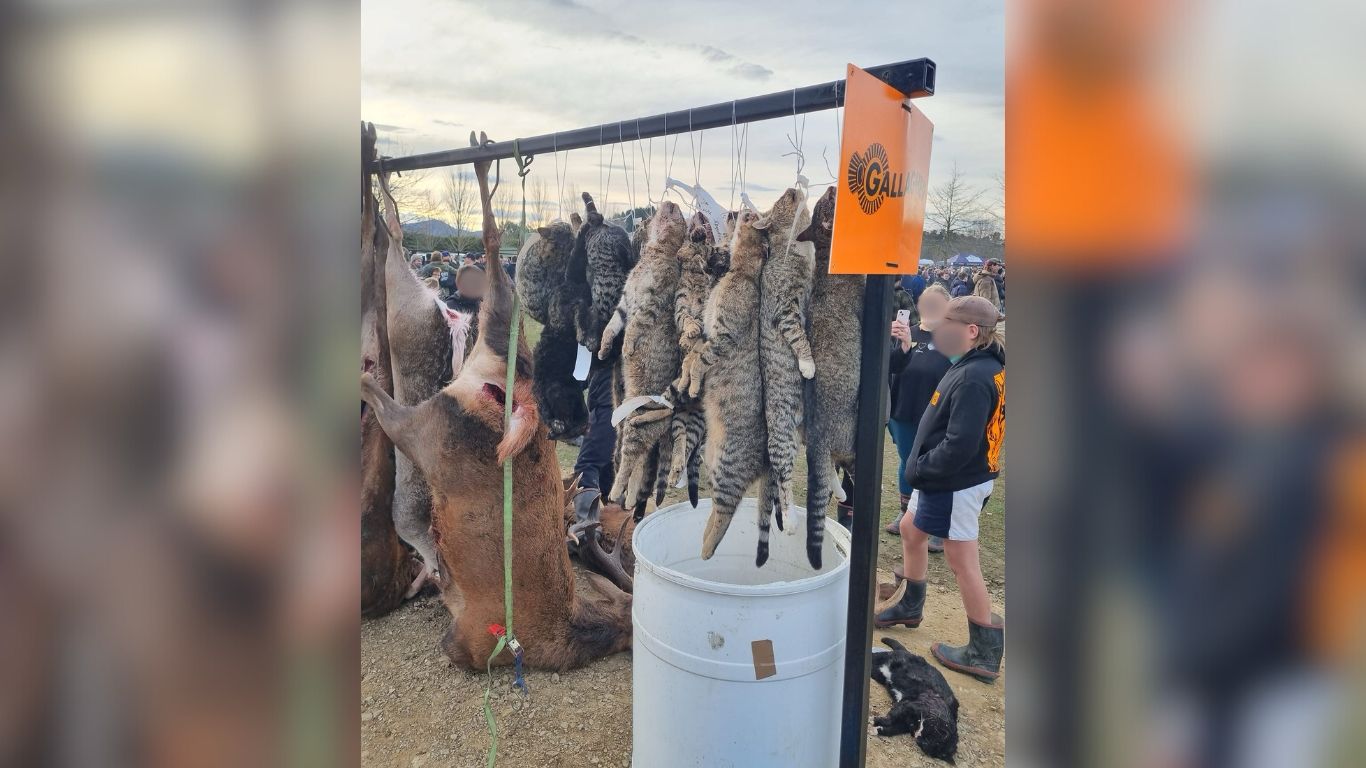Dear Honorable Members of the New Zealand Government,
Network for Animals and the below signed supporters are deeply concerned to learn about the annual North Canterbury Hunting Competition, where hunters are encouraging children of all ages to trap and kill cats. Upon investigating the legality of the hunt, we discovered that national laws allow and even encourage this practice, and that the New Zealand government’s response to the feral cat crisis is to shoot and poison them.
We strongly condemn these inhumane methods of population control and urge you to consider a national strategy that embraces more humane and effective methods for managing animal populations.
We understand that controlling the population of stray cats is important for protecting local wildlife and biodiversity. However, as this is our area of expertise, we are here to tell you that your current methods, such as shooting and poisoning, are ineffective and inhumane. This is clearly demonstrated by the National Cat Management Strategy Group, established in 2014, which has made little progress with these approaches over the last 11 years. It has also been shown that traps and poisons often negatively impact the very species these methods are trying to protect.
Culling feral cats has been shown to lead to increased breeding, as newly-available resources fuel a population explosion. Studies have shown increased numbers of cats at cull sites, as adolescents from neighboring clans secure the territory as their own. This means that killing cats actually leads to more native species being targeted by these introduced predators, and any clans that are wiped out are quickly replaced.
We are particularly concerned about the use of 1080, a slow-kill poison that causes vomiting, difficulty breathing, uncontrolled seizures and, after up to 18 hours after ingestion, death. Not only does this cause cruel and unnecessary suffering for the cats, but other native species, including endangered kea, can be injured and killed by indiscriminate use of the poison as well.
We have a data-supported solution that is both more humane and highly effective: Trap-neuter-vaccinate-release (TNVR) programs. Network for Animals has successfully implemented TNVR programs in Kenya, South Africa, Zimbabwe and Greece, making a significant positive impact in reducing stray animal populations. Sterilized cats defend their territories without reproducing, leading to a gradual and sustainable reduction in the cat population. Additionally, these cats help control the populations of other introduced predators such as rats and possums, benefiting native wildlife.
We understand that implementing a national TNVR program will be costly; however, it is the only humane, sustainable and – most importantly – effective solution available. In the interests of protecting New Zealand’s native species, TNVR programs are a crucial tool.
The current hunting competition in North Canterbury (Waitaha) has garnered negative attention both locally and internationally, putting the spotlight on national pest control methods, which are largely decried as both inhumane and ineffective.
We recommend abolishing all cat-killing competitions and adopting humane population control methods.
For the animals,
Network for Animals

